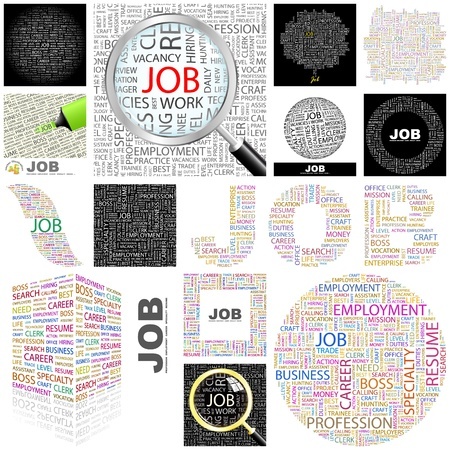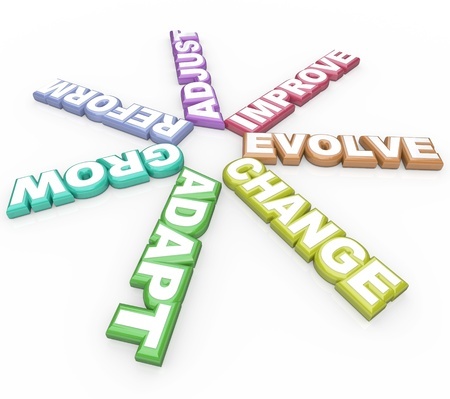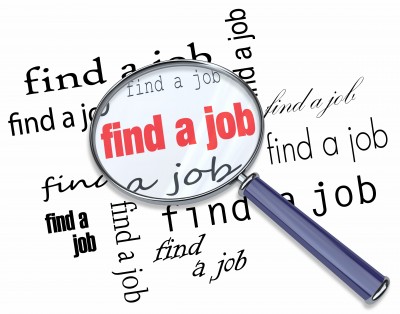Are You Missing What’s Right In Front Of You?
If you’re feeling stuck in your job search, it might be time to take a fresh look. This may mean changing your perspective, stepping in a little closer or taking a step back. It may mean considering the idea of doing things a different way.
I read a lot of books. Not a lot of fiction. Primarily books that will help me improve my services or help me improve myself. Right now, I’m reading a book on mindfulness by Joseph Goldstein cofounder of the Insight Meditation Society.
In the beginning of chapter six, I came across a passage that particularly caught my attention. It immediately resonated with me and I thought it would do the same for people who are frustrated in their job-search efforts.
Where Recruiters Look First When Reviewing Your Resume
You probably already know that recruiters don’t spend much time reviewing each resume. Hiring managers don’t either. So by all accounts your need to get their attention fast.
The often referred to study done by The Ladders found recruiters reviewed resumes for 6 seconds before making a decision.
When I was recruiting I spent more than 6 seconds reviewing candidate resumes before making a decision whether or not to contact them for an interview. The recruiters I know spend more than 6 seconds too.
Will Your Online Presence Scare Employers Away?
Increasing numbers of recruiters and employers are conducting online searches on job candidates. In response, many job seekers are completing their LinkedIn profiles and being a little more careful about what they post online.
But, the truth is that’s not enough because what’s published online can stay there forever. It’s up to you to research your digital footprint and monitor your online presence going forward.
Initial Search
Before you begin your job search, make sure you know what is out there. Pretend you’re a recruiter and conduct your own online search. Try searching on your name and variations of you name.
3 Ways To Talk About Your Greatest Weakness (Or Biggest Failure)
Looking for a job is a job. You need to prepare your resume. You need to fill out your incomplete LinkedIn profile. The one that’s been inactive for years. You need to develop a job-search plan.
While each of those can be intimidating, there’s nothing more nerve-racking than going on a job interview. The best way to calm those nerves is to prepare questions to the most commonly asked questions in advance.
It’s not difficult to prepare responses for “tell me about yourself” or “why should we hire you?” Most people are uncertain what to say when asked about their greatest weakness or greatest failure.
Once The “Kiss of Death” Job Hopping Is Becoming More Acceptable
A series of shorter stints at different companies no longer carries the same stigma it once did according to a 2014 study by CareerBuilder. More than half of employers (55 percent) responding to the survey said they have hired someone considered to be a job hopper and nearly one-third (32 percent) said they expect people to change jobs often.Read more
How To Modernize Your Job Search
If you haven’t looked for a job in the last decade, or even in the last five years, you will find that things have changed. A lot. While searching employment ads used to be THE way to find a job, today it should be only one component of a job search.
Technological advances have transformed the way people look for work. The best strategy is to take a multipronged approach.
Stop Relying On Ads
Combing the job ads used to be the way you found a job. Today, searching employment ads and applying for jobs online should be only one part of your job-search strategy. Many jobs are found through networking, online and offline. Schedule at least 2 networking events a month if you’re actively looking for a new opportunity. A referral can sometimes open doors.
10 Simple Job Search Strategies That Work
1 Make a list of your target employers and try to network your way in. As your friends, family, LinkedIn connections, etc. if they know anyone who works for one of your choices.
2 Keep a record of the companies and positions where you have applied. This will save confusion if you are contacted by someone from HR or a recruiter who is working on a position you’ve already applied for.
15 Tips To Help You Succeed In Your Next Job Interview
Job interviews are nerve-racking to say the least. In many cases, this is the first “personal” connection you’ll have with someone at the company.
Your resume got you in the door. Now it’s up to you to show them your best self.
Here are 15 tips to help you make the most of your next job interview. You’ll notice that half of them involve planning in advance.
Before the Interview
- Plan more than enough time to get to in-person job interviews. Visit the location a day or two in advance to eliminate surprises.
- Use a landline whenever possible during phone interviews. If you must use your cell test the connection before your scheduled interview.
- If you are taking a phone interview at your office find a quiet, out-of-the-way place. Avoid the rest room, hallway, or stairs where someone from your office is likely to see you.
- Research the company in advance. Read through their website, it may give you come insight into the company culture.
- Review the company’s social media presence. What do they post? If there any interaction or just automatic posting?
- Research the people you’ll be interviewing with in advance. Many organizations have information on staff members. Take the time to look them up on LinkedIn too.
- Prepare answers to the most commonly asked interview questions like “Tell me about yourself” and “Tell me about a time when you made a mistake” and “What is your greatest weakness?”
- Have a few questions ready for when the interviewer asks “Do you have any questions?” The advance research you’ve done will help with this.
During the Interview
Worst LinkedIn Headline For Job Seekers
Your LinkedIn Professional Headline is very valuable real estate. It’s the first line people see when they view your profile. It’s also the first line people see when they do a LinkedIn search. (That includes recruiters who are trying to fill open positions.)
So it’s in your best interest to make it count.
Unfortunately, most people don’t use LinkedIn’s Professional Headline to their best advantage.
By Default
If left alone your LinkedIn headline will default to the title of your current position. This may or may not work to your advantage. If you’re a marketing manager who wants to remain a marketing manager allowing your LinkedIn profile to default to your current position probably won’t hurt you.
Providing you have a robust, optimized profile recruiters trying to fill a marketing manager position may find you. Still, leaving your headline in default mode won’t do much to help you either.
Think You Can’t Find A Job Through An Online Connection? Think Again.
Many people I talk to, particularly those over a certain age, scoff at the idea that there can be any true relationship with the folks you meet online.
A few of my friends had to be dragged kicking and screaming to LinkedIn. Almost every job seeker I’ve suggested sign up for Twitter says, “That’s not for me.”
Really, not for you?
Why not?
I know many people, myself included, who have developed valuable professional and personal relationships with people they met on LinkedIn and Twitter.










